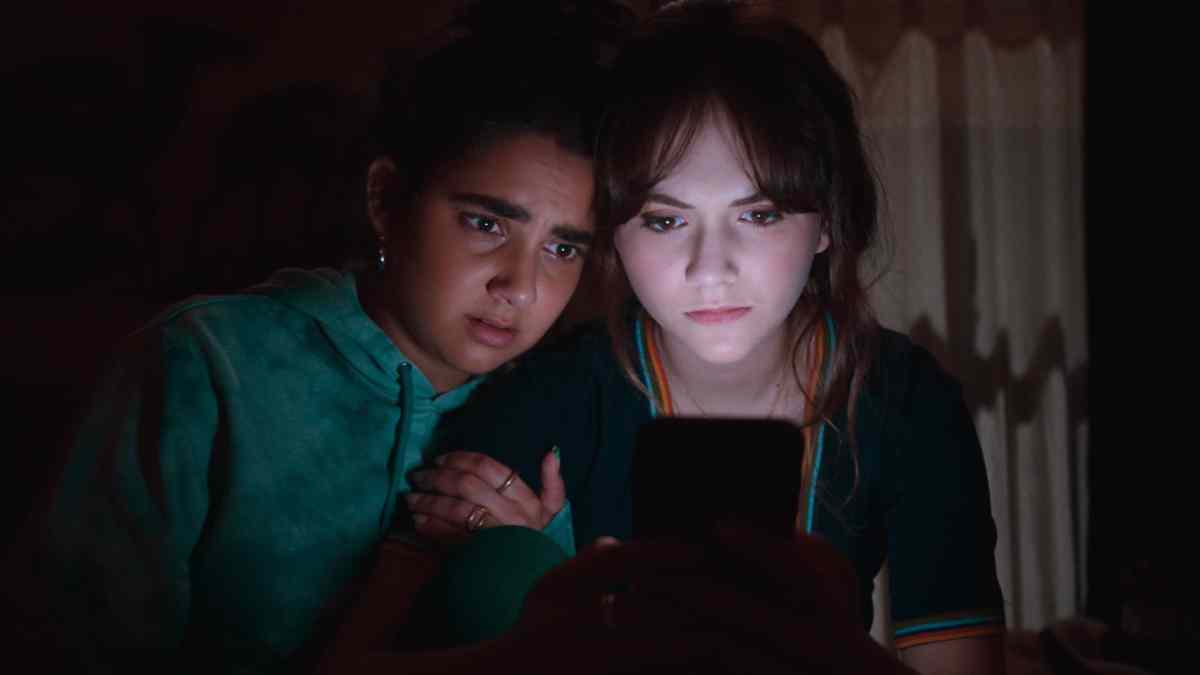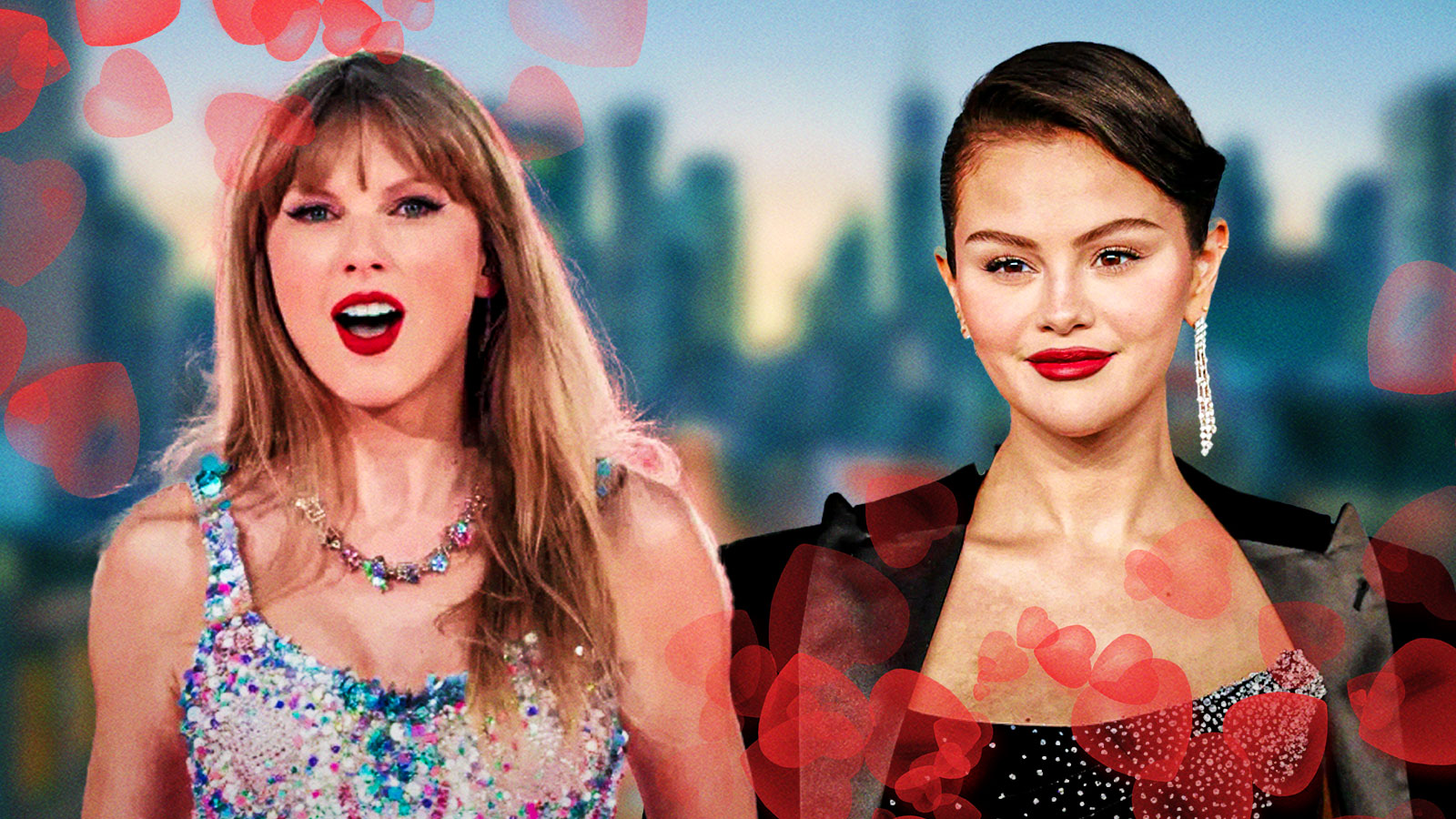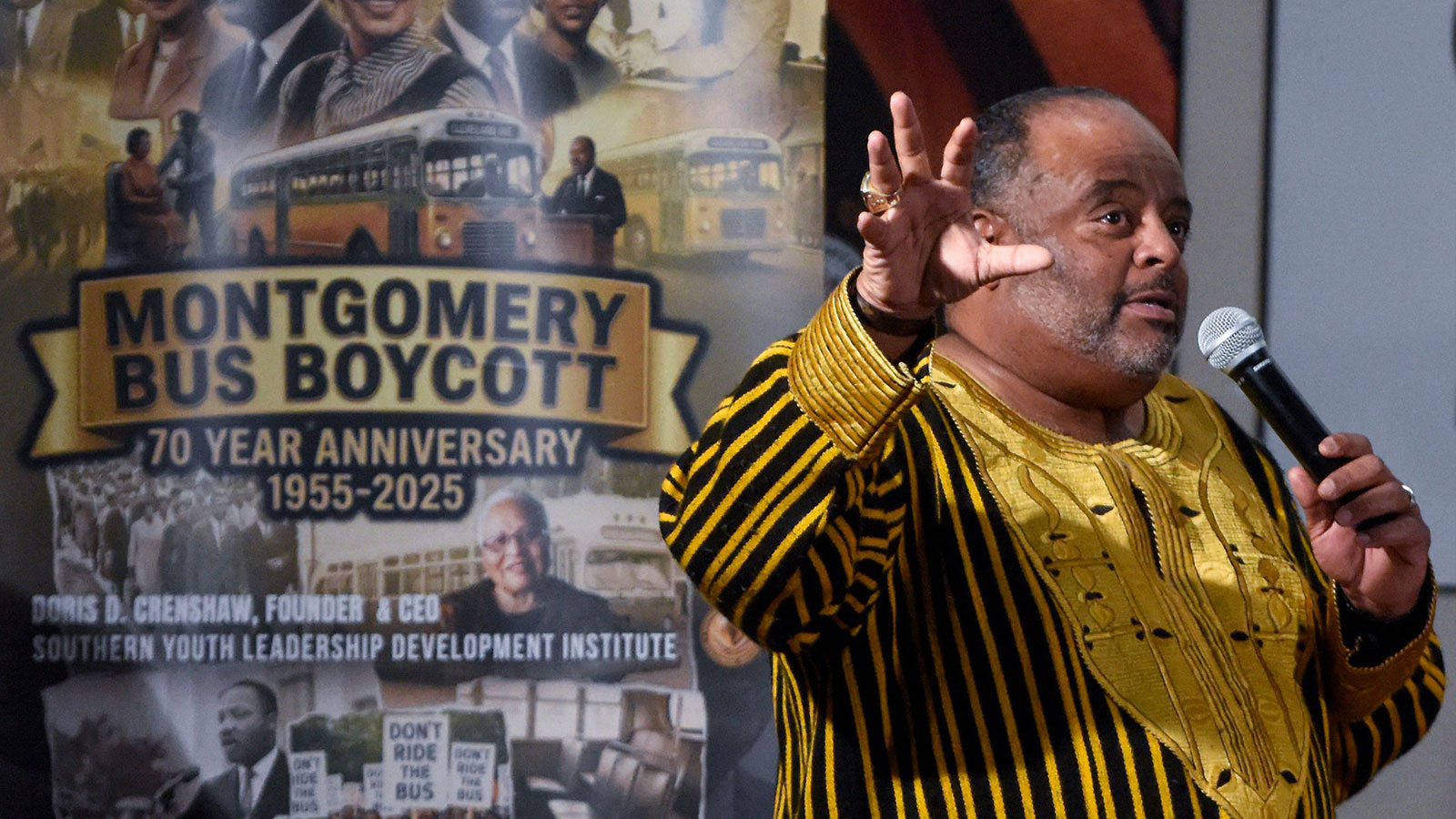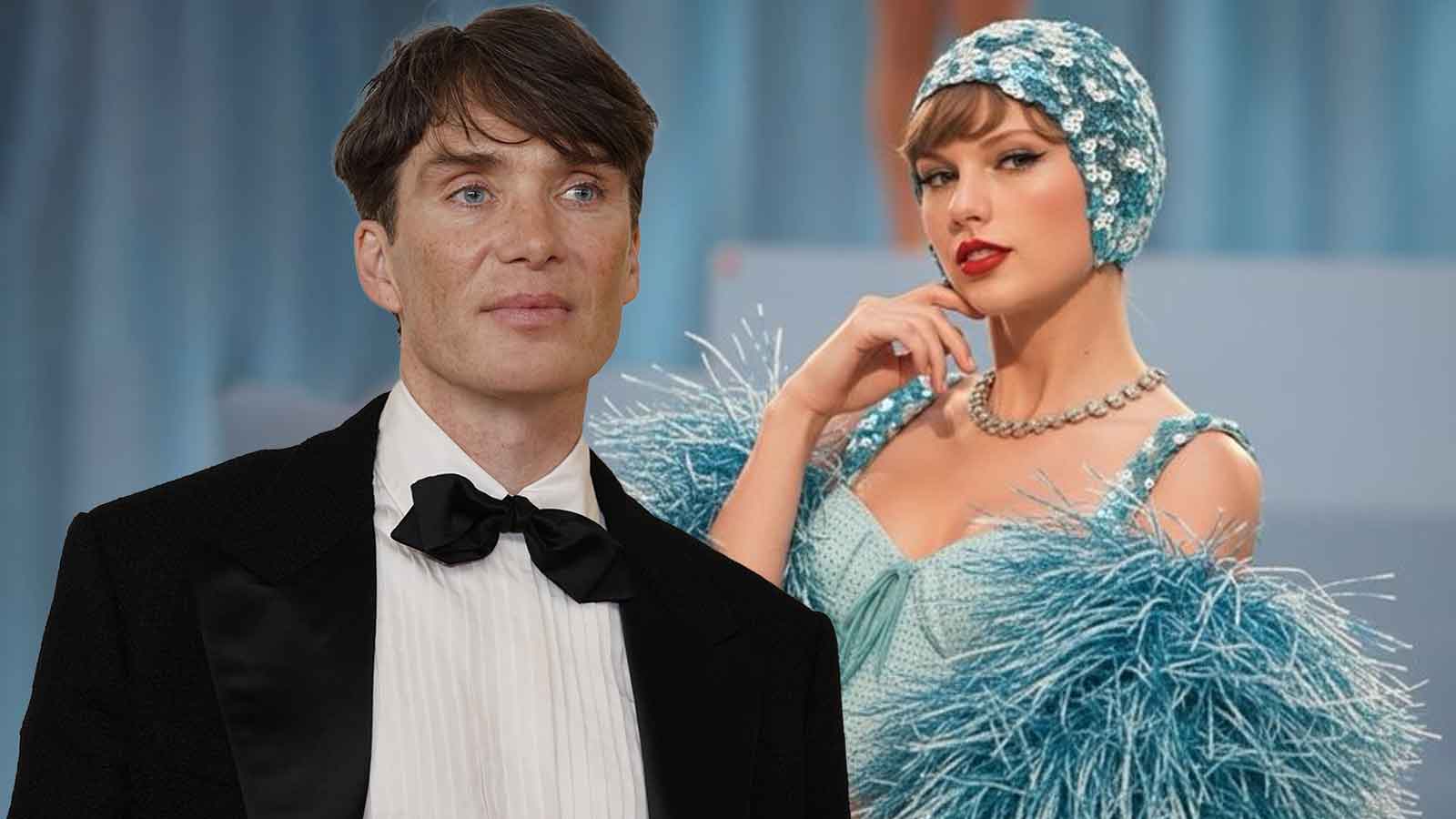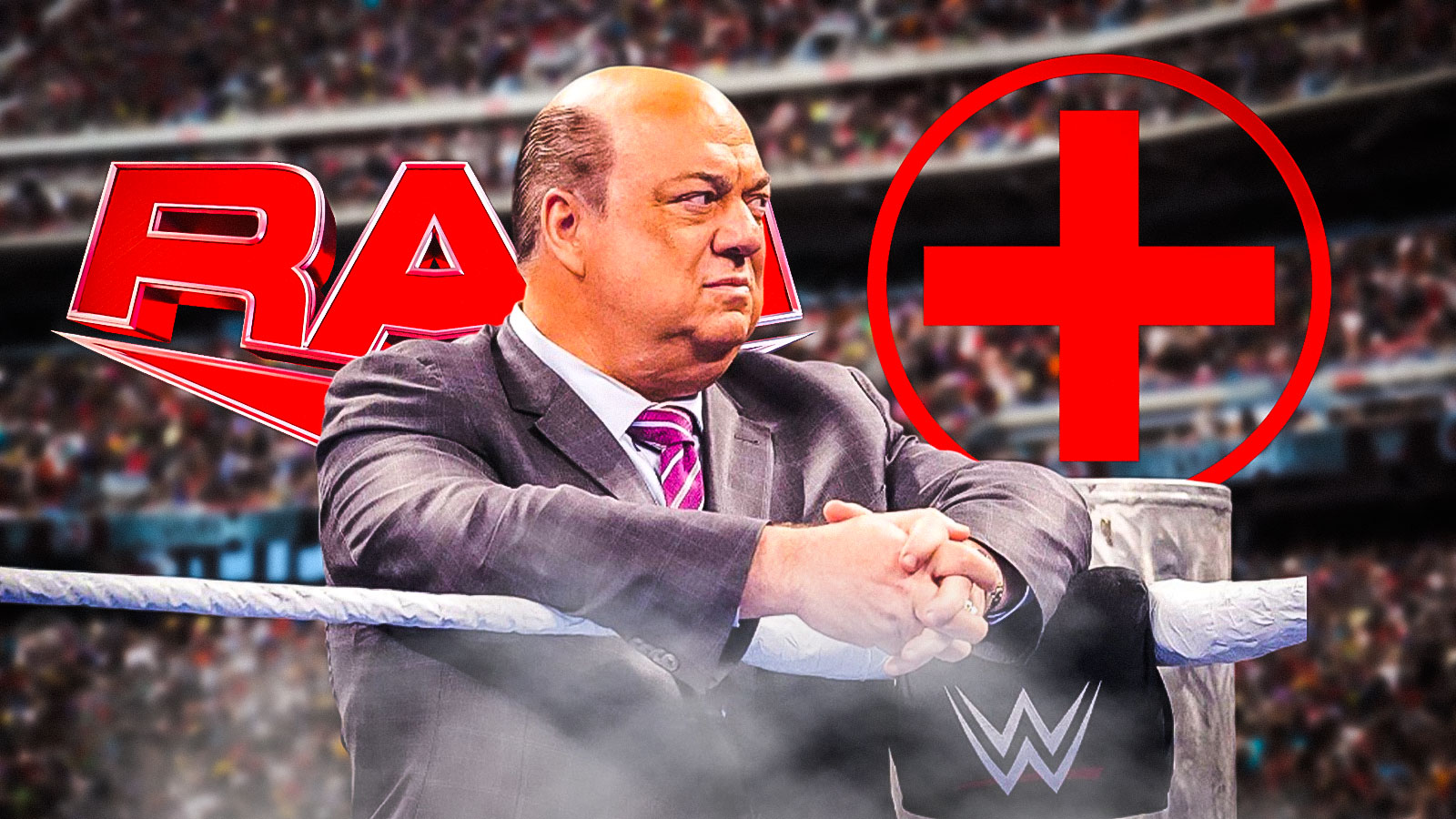Cat Person is a scary movie.
Okay, maybe not in the traditional sense. The film follows a young college student, Margot (played by CODA standout Emilia Jones), who meets an older man, Robert (Nicholas Braun), while working a shift at her local movie theater. After some weird tension, the two start texting.
The relationship consumes the two of them. As they continue texting, their relationship grows deeper. However, text is text, and they've hardly hung out in-person. If there was ever an accurate representation of what young adult dating looks like in 2023, it's Cat Person.
Susanna Fogel — who helped write the stellar coming-of-age comedy Booksmart — directed this adaptation of the viral short story published in The New Yorker in 2017. Kristen Roupenian's original short story tells about half of the story the feature film does.
Enter Michelle Ashford, who created Masters of Sex for Showtime. She was tasked with making this short story into a feature film, while also updating the verbiage to 2023 young adults. She passed with flying colors, and it's her script combined with Fogel's directorial prowess that create a surprise hit of 2023.
But it wasn't easy. Research was done, and Ashford acknowledges that. She spoke to ClutchPoints about her initial reaction to the Cat Person short story, adapting it for the big screen, that sex scene, and the real implications of the story.
Michelle Ashford-Cat Person interview

ClutchPoints: I didn't know Cat Person was based on a short story that was previously published. Do you remember your initial reaction to it when you read it?
Michelle Ashford: Someone came to me and said, “Oh, this has just gone viral in The New Yorker — would you be interested in adapting it?” And I actually hadn't read it yet, so I read it and I immediately understood why it had gone viral. I thought it was tapping into something kind of chilling in terms of a truth that women have been sort of carrying around for a long time, but often didn't talk about.
So I thought, Oh, that's really very interesting. And this was pre-MeToo, but then that came along pretty quickly afterward. It felt like a burning issue to me — this sort of gray area of how the sexes relate to one another, or don't relate is more to the point. So yeah, so I read the story.
I thought it was really interesting. It seemed eerie to me and spooky and I thought maybe this would make a good horror movie and sort of went from there.
CP: Did Susanna Fogel approach you to adapt the short story?
MA: I wrote the script first and then we went and found Susanna.
CP: Susanna's done a lot of films, whether she's a writer or director of them, so were there any films of hers that you felt showed that she could adapt your script well?
MA: Well, the thing that you're most looking for when you want a director for your work is you want somebody who's really responding to the script. And Susanna really responded to the script. And then I had seen The Flight Attendant, which has an interesting tone — it's [like] its own sort of horror story, but it has a certain buoyancy to it. And I thought, I think this story needs that.
It's certainly based on the script I had written. It was supposed to be both sort of strange and funny and then also kind of ghastly and awful. That tone needed to be kind of balanced, and not only did I think [that] Susanna could [do that], but also when we started talking, we just completely clicked on the material, and that was really important.
CP: Going back to the short story, how closely did you use that as a reference point? I know that your film goes well beyond where the short ends.
MA: I loved Kristen [Roupenian]'s story, and I thought she wrote it brilliantly, so I did use a lot of her stuff. But the world needed to grow, and I also felt like, for her story, that ending is a definitive ending. We made up our mind about Robert, and I felt, especially because the MeToo stuff had started to just explode, I don't know that that is the end of the story for Robert. I don't know that we have made up our mind about him. Let's kind of push that further and see who is this guy? Really? She's made up her mind based on kind of nothing except for what she's imagining mostly and just these weird cues and what she's getting on her phone and how she's really actually making decisions based on so little information and most of it is being amplified in her own head.
So I wanted to take the tone, the feel of the story, but then I thought [that] there's more to say here.
CP: I love those scenes where Margot's imagination goes to whatever the worst-case scenario is. It happens so suddenly that a couple times I jumped because I wasn't expecting it. Was that something that was in the short story at all, or was it something that you added in your script?
MA: Well, that's the story. She's spending a lot of time in her head thinking about things. I mean, I definitely added more of what was going on in her head and we had to find a way to render it visually.
So that was part of my job in writing the script — it's a very internal story. So how do you visualize that? A lot of that was just [figuring out] “Okay, well, how are we going to show what's going on in her head?” And that's what I came up with.
I think that both Kristen and I were trying to show; [that] this is what this young woman is carrying and that we go through live our lives a lot like this, and it's not great when you're actually trying to have actual relationships with people, right?

CP: You talked about making it come live from page-to-screen. How does that look on the page when you're writing it to suddenly cut to whatever's in Margot's head?
MA: I mean, you're going along and then you're telling this story in real time and then you just, in the script, you write in either “Margot's imagination” or “flash forward to,” or “flashback to,” or whatever. It's just ways of writing it in the script, but you definitely put it in the script.
CP: I loved that when listening to the characters, it felt like I was listening to my generation talk. Times have changed so much with social media and texting, but was it ever difficult to write for this modern generation?
MA: It's funny, when Kristen wrote the story, I think [she was] in her 30s, and she goes, “I don't really know that I know exactly [how to write for a younger generation].” She was a little daunted by writing a 20-year-old.
And I was like, “Yeah, I was having the same issue.”
So I actually did go and go to weird sites, weird threads, weird whatever, looking around to see what college-age kids are talking about and how are they talking about it. So I actually did look at that because I really wanted that to feel authentic.
It did help that I have two college-age kids, so I could go and just say, “Hey, where would I go to find out what everyone [talks about.”
As silly as it sounds, I actually researched that [smiles].
CP: Was the quote that the film opens with used in the short story?
MA: It was not in the short story. But when you start poking around and reading, and looking around about this topic, and who has said what, there's all sorts of things written. I pretty quickly came across that Margaret Atwood quote, and I thought, Wow, that is actually very true.
When Susanna came on, I said, “What do you think about this quote?” She was like, “Oh my God, I love it.”
And she goes, “I think you should actually open the movie [with the quote],” and I was like, “Oh, okay.”
I actually [had] a character say it in the movie, and we ended up just putting it up at the front.
CP: Do you remember what character was that supposed to be?
MA: Yeah, it was Isabella Rossellini (who plays Dr. Enid Zabala) who said it in that lab. She said something about what Margaret Atwood said. And so we ended up taking it out of there and just putting it a quote on the front.
CP: The film is backed by a lot of women behind the camera, and while there have been other films that dealt with the idea of whether or not can you trust the stranger, Barbarian, for example, dealt with it, but it was a male-directed film. So I was curious if you think that having that female perspective does reinforce the story in a way.
MA: Look, we only have our own vessel through which we experience things. I'm not a fan of people who say, “Oh, you can't write anybody else's experience unless you're actually in their skin.” I don't really believe that. I've made an entire career of trying to be in other people's heads and hearts to try and write how they would feel.
I think people can do that very well. I will say, though, this notion of this Margaret Atwood quote, the thing she's tapping into is just a sort of low-grade worry … not worry … I don't know what the right word is to that women carry of a little flicker of fear, and it has to do with just the animal world, which is women are smaller, they're less strong, that there is a certain vulnerability physically out in the world that if you're going to have to go toe-to-toe with someone, especially a man, it may not work out that way very well for you. You know what I mean?
And then it gets sort of translated into because there's that sort of natural physical imbalance. Then there's this sort of low-grade fear — we're talking about when a woman walks across a dark parking lot at night, I've had men say, “That scares me too. It's not just you.” And it's true, any man can also feel very physically vulnerable, but I would say that it is women specifically have that they carry with them always, [in] some form or another. And so that seemed really interesting to write about and bringing that sort of very animal base instinct into things like dating, that can get really complicated.
CP: There are some intimate scenes shared between Margot and Robert, and while you've had intimate scenes in some of your old projects, Masters of Sex, for example, can you compare writing them? I know that they're very different projects, but I wanna know what writing something like that versus the scenes you have in Cat Person is like.
MA: Well, there's actually more similarity than you'd think. Because in Masters of Sex, the one thing that I said from the very beginning before I tackled that show was [that] I don't want to write sex scenes to be sexy — I have no interest in that at all. And so the sex scenes in that always had a story reason for existing. And a lot of the sex scenes in Masters of Sex were like science scenes, because, of course, they were researchers.
So a lot of it was profoundly unsexy, and the sex was about other things. And that was much more interesting to me.
So this [Cat Person] was similar in that way, because that sex scene is the most unsexy sex scene. It's really about how their inability to communicate or be honest with one another or speak their truths [or] however you wanna put it, has led them to this moment where there's just such massive miscommunication going on and neither one is saying what they really think or feel [and] this dreadful sequence goes on and on and on, because nobody's being honest.
CP: The film's also funny in a lot of ways — sometimes it's not unintentional, it's that cringe humor where you're almost nervous and you want to laugh, right?
MA: Good! Yeah, that was the intention [smiles]. We wanted it to be funny.
CP: Some of the film is very dark and grimy to the point that it makes you feel gross, but then there's also parts where you're kind of laughing. Is that a tricky balance to find when you're writing?
MA: No. If you're going to call this sort of a horror movie or a “social thriller,” if you want to call it that, yeah, there's plenty of room in movies like that for humor. And I think in a way, those are always the ones I like best, where, first of all, when you're observing human behavior and human nature, it's almost impossible for it not to be funny at some level, because of course people are pretty crazy and absurd creatures, so that seemed natural to me.
And [here, in Cat Person] you're talking about dating, which is also another just kind of mess — in a funny way. So yeah, I felt it felt really natural to me to make it funny and I didn't think it at all violated any kind of genre rule like you can't have a horror movie that isn't funny because of course, many horror movies have humor in them — I think the best ones to be honest.
I didn't have a problem with that at all. It was by design.
Warning: Spoilers ahead for Cat Person
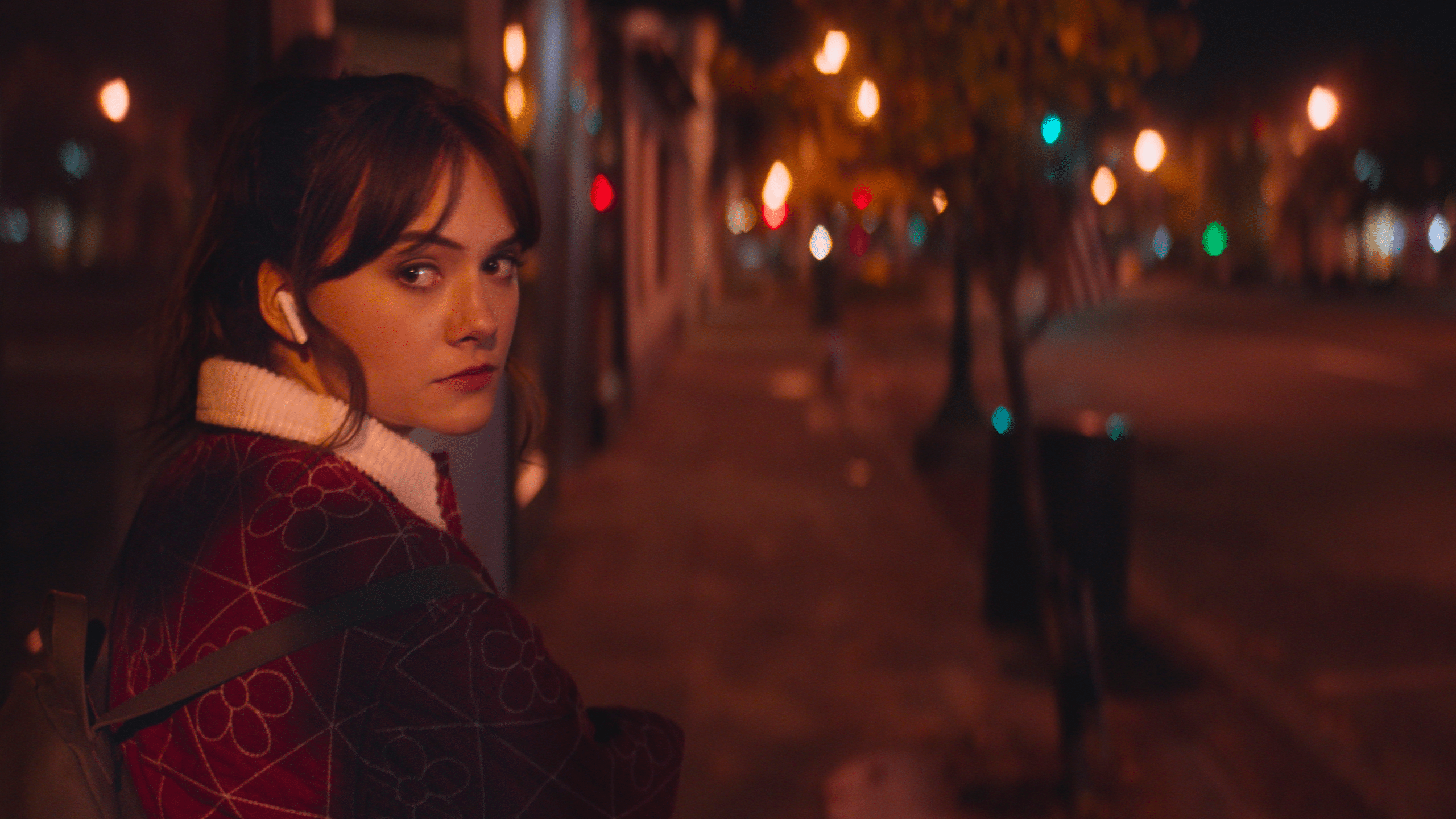
CP: I do like where this film ends. As I alluded to earlier, the short story ends in a very different place, almost about half the way the movie is. Yet in your film, it ends where the movie began — back in the movie theater. I know you said that you wanted a definitive ending, but this one almost leaves it all open-ended once again.
MA: Yes! In a weird way, I think Kristen's story is a more definitive ending than the movie ends up being. And I really wanted that.
I wanted to have this young woman go through this experience, realize she was not a great communicator, she made a bunch of leaps in her head about things, [and] she made a lot of mistakes. And he [Robert] did, too, but she gets through this whole thing. The only really honest moment they have where they're actually communicating about what was going on between them is when it's too late, right?
She gets through this ordeal, and now the question is: Has she learned anything?
So that's why I really wanted to start it [and] end it back in the movie theater. Now another guy's coming after her and saying “Hey, can I have your phone number?” And the questions [are]: Will she do it better this time? Have we learned anything?
We've gone through this whole MeToo thing. What have we learned? And I'm just honestly asking that. Where are we with it? This notion of just saying, Do we learn from our experiences as we go through them? Or do we just do them to repeat [them]?
CP: In your gut do you think that Margot gives the guy her number?
MA: She can give the number to the guy, [but] the question is: Is she going to be a more authentic person when she's talking to this person? Is she going to spend time with him [and] not rely on texts to decide who he is or who he isn't?
I think one of the things that I hope people take away is [that] there's no substitute for actually communicating with an actual human, one-to-one, in the flesh and actually experiencing what they're like because there's a bazillion cues you get when you're actually with someone that you could never get if you're dealing with your devices.
Cat Person is in theaters now.

